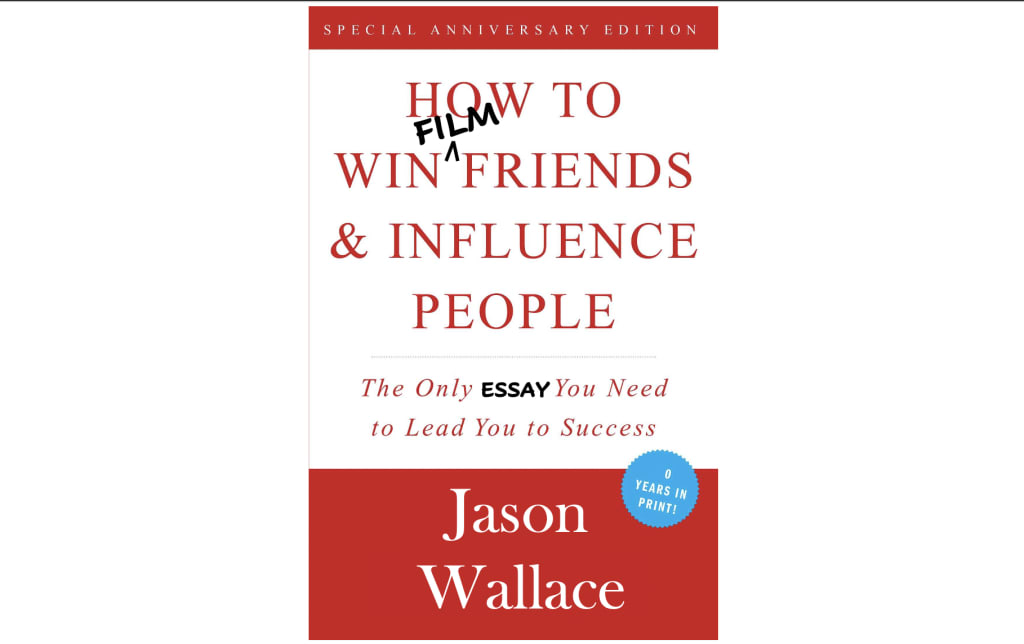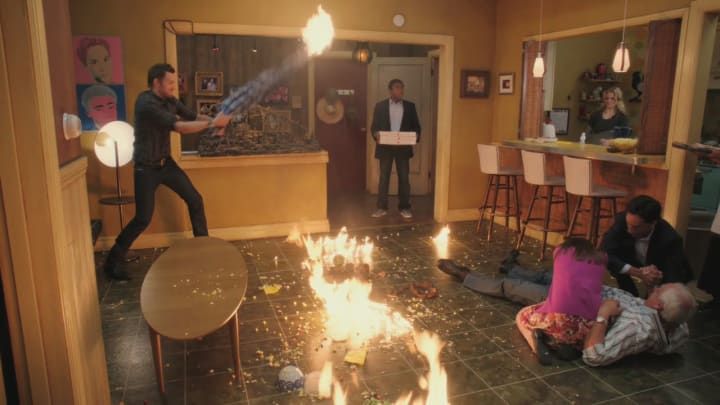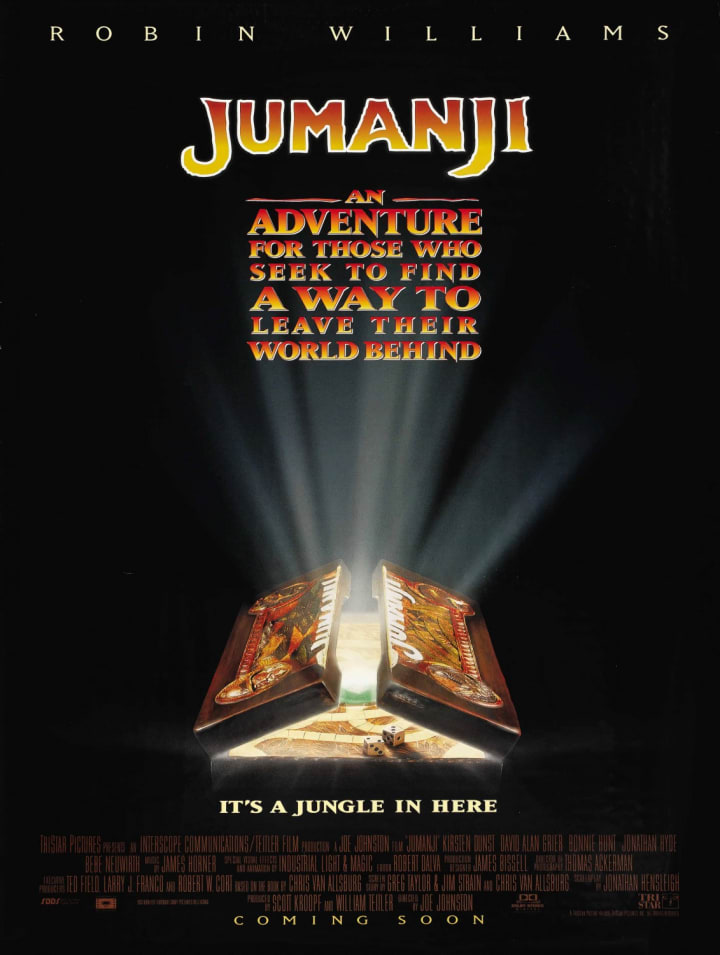How to Win Film Friends and Influence People
Interesting People Watch Polarizing Films

You’re on your way to a dinner party thinking of the one thing you’ll say when you feel the inevitable silence thicken in the midst of strangers. Maybe you’ll have an un-fact-checked trivia question from Buzzfeed written down in your phone. Maybe you’ll memorize an editorial on the economics of bitcoin. The best thing you can do is adhere to the following prescription for starting a conversation about film. People will be in your DM’s forever asking you for movie recommendations. Buyer beware.
Most people will lead a conversation with something topical: “Have you seen Nomadland (2020)? I hear it’s the favourite to win Best Picture at the Oscars this year.” All this leads to is nodding heads. Maybe one girl saw it. Maybe two brothers illegally downloaded a screener. Chances are, most people will have heard it is good, but won’t have seen it. Television and film still have monoculture moments like The Queen’s Gambit (2020) or Avengers: Endgame (2019), but popular shows lead to boring conversations. Oh, you liked The Godfather (1972), too?
The 4-Part Formula
1. The Needle
Lead with a thesis that the most interesting people watch films with polarizing critic scores. They’re intrigued already. They want to be the most interesting people. Who doesn’t?
Choose and film in the 40-60% range on Rotten Tomatoes and go for it. How is Jumanji (1995) only 55% on Rotten Tomatoes? Robin Williams is a genius – how can half of critics not realize this?
By proxy, the room should hold equal numbers of Jumanji fanatics and people who dislike the film. Let them debate. The next step is inevitable. People will start looking up their favourite movies. From the Jumanji debate, someone will ostensibly find out that The Life Aquatic with Steve Zissou (2004) holds 56% rotten rating. They’ll scream. Bill Murray and Robin Williams deserve better.
2. The Magnet
Once the dinner party resembles something similar to the “Remedial Chaos Theory” episode of Community (2009-2015), now is your chance to calm everyone down.

“Jumanji has a 3.5/5.0 star rating on Letterboxd. Life Aquatic has a 3.8/5.0!” The world will feel back in balance. You may need to explain to non-film nerds that anything on Letterboxd with a 3.5 or higher is generally a well-regarded film worth their time.
“Anything on Letterboxd rated 4.0 or higher is an admirable way to spend your time. You can’t say the same for Rotten Tomatoes. A critic may give a film 2.5/5.0 stars and still give a fresh rating. It skews the scoring method.” Tell them about Decider: next time they're unsure about a new film, use the "Stream It or Skip It" reviews.
This is when the gravitational pull starts. “Are you in the film industry?” You have them now.
3. The Curator
Now the room is looking at you. People are assuming you were the cinematographer for Ingmar Bergman. They think you ran craft services for De Palma. There’s always going to be that one guy though, the guy who mentions IMDb and their scoring system. “I only watch films over 8.0 on IMDb,” someone will say. Don’t be nervous. We’re ready for this. Memorize the following line.
“There’s only four films rated a 9.0 or higher on IMDb and one of them includes Batman.” There will be laughs. Be humble about it.
The Dark Knight (2008) is a great film directed by Christopher “Movie Theatre” Nolan. But the room will be on your side when you deflect the IMDb argument with Batman. If this fails because someone mentions Heath Ledger and his Oscar, steer the argument to the film editing. “The boat scene is completely unnecessary. It’s tacked on, and means the film tries to double-dip on its third act. It feels like an extra Post-it note was left up on the board and they couldn’t decide which ending to pick.” Anyone who starts talking about film editing has the upper hand.
Now, bring it home.
4.The Pick
Your goal is find a film your audience likes in the 40-60% range on the tomato site and recommend from there.
Here’s some fun picks:
Ace Ventura: Pet Detective (1994) - 49%
Any Given Sunday (1999) - 52%
Natural Born Killers (1994) - 48%
The Notebook (2004) - 53%
The Pelican Brief (1993) - 53%
The Fast and the Furious (2001) - 53%
How the Grinch Stole Christmas (2000) - 49%
Step Brothers (2008) - 55%
Once they’ve chosen their weapon of choice, you can recommend any of the other films on the list above (or hundreds of others – have fun with it!). Or play it safe and start by recommending Jumanji. On the surface, it’s a polarizing film, at least in tomato land. But you know that it’s also Letterboxd approved, so you have a failsafe built in. It’s "only" a 7.0/10 on IMDb, but we unplugged the Bat Signal so this doesn’t matter.

Jumanji is old enough that most people have either not seen it in a long time or haven’t seen it at all. Maybe they’ve seen the reboot and sequel. With the late Robin Williams being the star, nobody is going to begrudge you for wasting their time. It is bottled nostalgia.
From there, lead them to the next undervalued film. Tell them to use the cafeteria as a place of discovery. You don't always have to sit at the cool table. The best part about this exercise is that it's a choose-your-own-adventure game for your new friends, mimicking Jumanji. You can tell them this clever bit after they're down the rabbit hole. They can pass on this same game to their friends.
Push your friends and new acquaintances to embrace the polarized films. Tell them they’ll be better because of it. More interesting people. It’s even better if they can argue both sides of the debate. It is certainly more interesting than all agreeing on The Godfather. We all know that The Godfather: Part II (1974) is better anyway.
About the Creator
Jason Wallace
Jason is an artist living in Calgary, AB, Canada. He's written pop culture criticism for the publications Vue Weekly and See Magazine. He worked on Elite: High Performance Lessons and Habits from a Former Navy SEAL by Nick Hays (Wiley).
Enjoyed the story? Support the Creator.
Subscribe for free to receive all their stories in your feed. You could also pledge your support or give them a one-off tip, letting them know you appreciate their work.






Comments
There are no comments for this story
Be the first to respond and start the conversation.